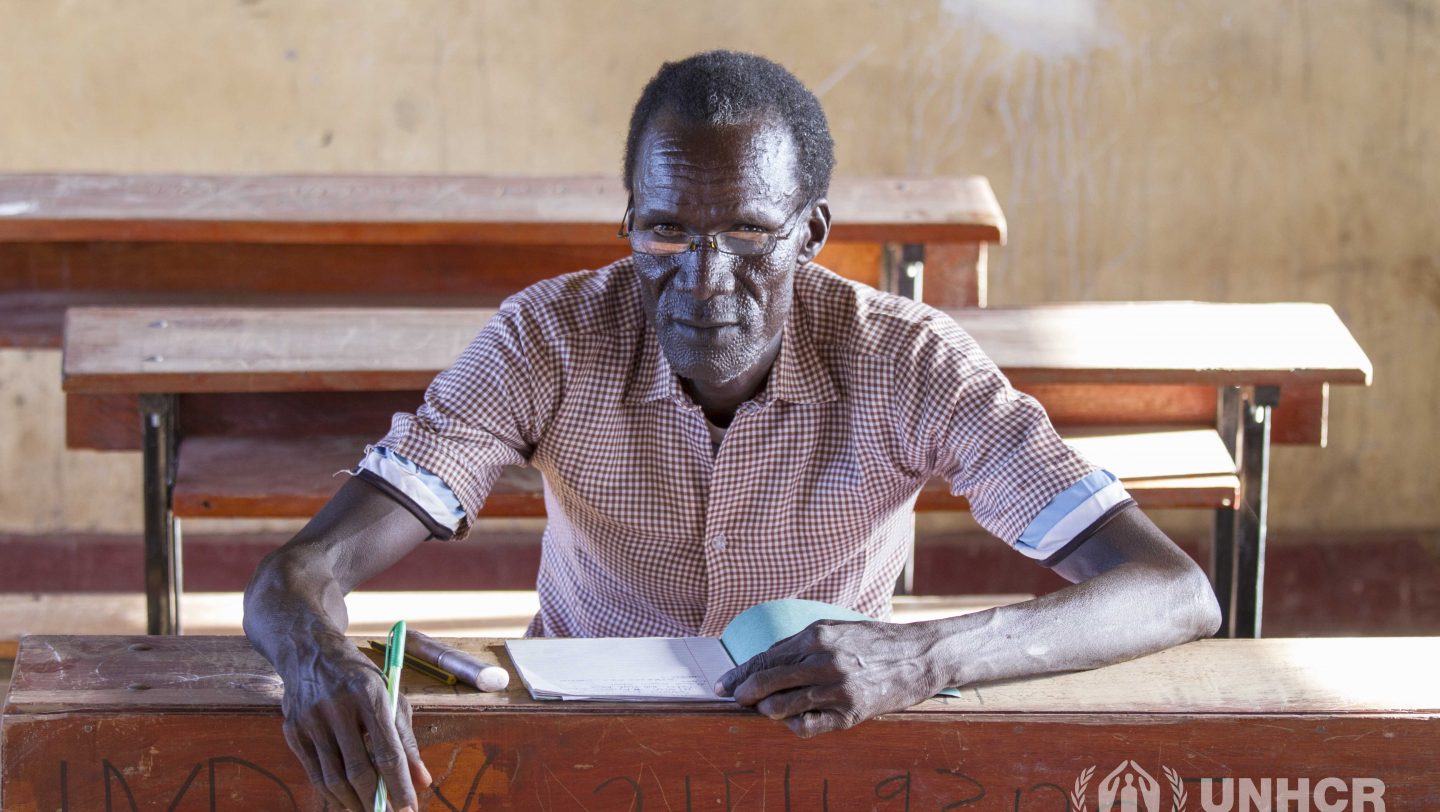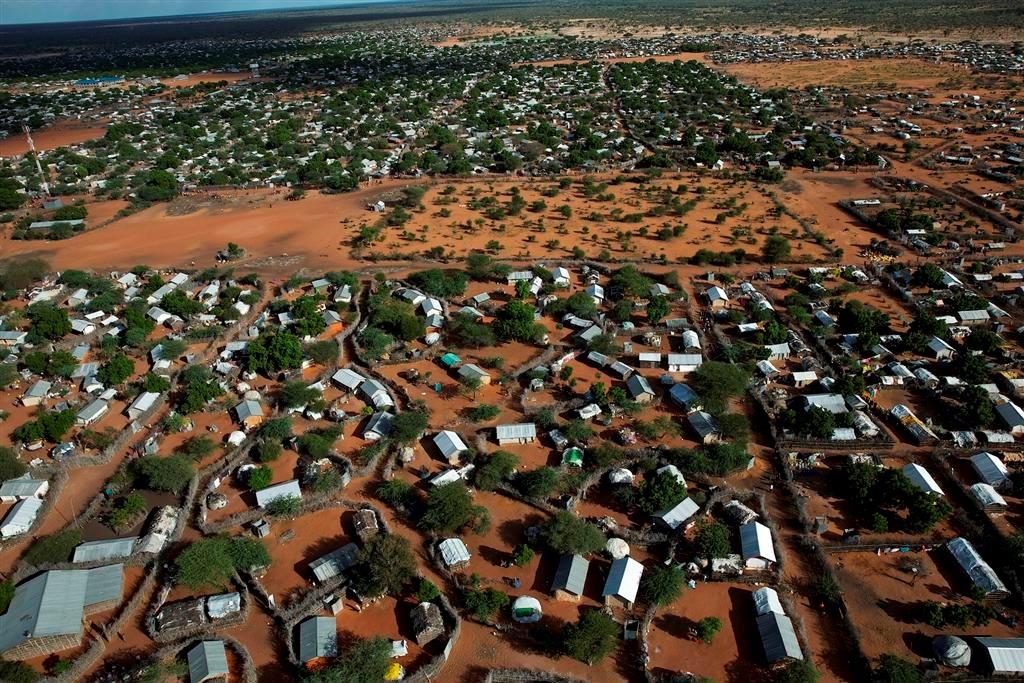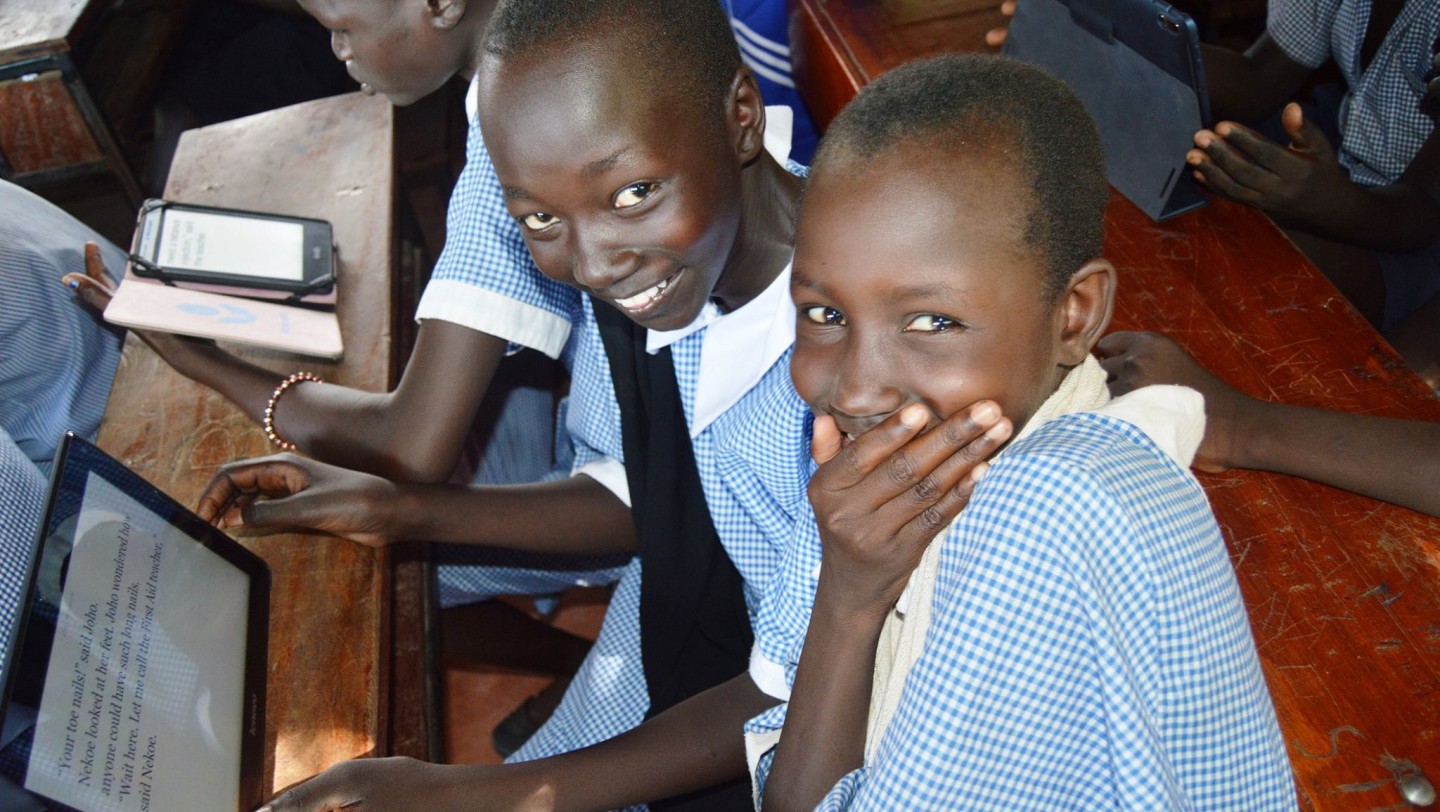Livelihoods
Investing in livelihood activities helps reduce the costs associated with the provision of aid and protection
Livelihoods allow people to secure the basic necessities of life such as food, water, shelter and clothing. Engaging in livelihoods activities involves acquiring the knowledge, skills, social network, raw materials, and other resources to meet individual or collective needs on a sustainable basis. Displaced people are typically involved in activities such as agriculture, livestock breeding, fishing and trade. Income provides the basis for food security and self-reliance, contributing towards general stability, prosperity and peace.
Investing in livelihoods activities helps reduce the costs associated with the provision of aid and protection. Building self-reliance is essential throughout all phases of displacement; during emergencies, following emergencies, and towards durable solutions. Self-reliance will enable refugees to live with dignity and create a future for themselves and their families.
Kakuma
Kakuma Refugee Camp currently hosts over 190,822 refugees of which 41% of the registered population falls within the productive age of 18-59 years old. Majority of the refugees earn their livelihoods through employment as incentive workers, petty trade, cash remittances from relatives and friends abroad as well as engagement in small and medium scale business enterprises (traders/vendors, motorcycle riders, tailors).
A range of vocational and skills training programmes are implemented through Don Bosco and Norwegian Refugee Council (NRC), these trainings provide youth with marketable hands on skills necessary for their survival in the camp.
The Sub Office in collaboration with the Government and partners seeks to promote self-reliance through development of refugees’ individual capabilities (e.g. skills development, establishment and development of small businesses) as well as promoting an environment that fosters access to livelihoods opportunities, partnerships with the private sector and sustained advocacy initiatives to ensure policy reform that allows for integration of refugee and host community economies.
Key livelihoods interventions include improved access to agriculture through use of optimal water irrigation systems, access to information and communications technologies, provision of vocational and technical skills training opportunities and improved access to self-employment/business. In 2015, UNHCR strategic partnerships with implementing and operational partners witnessed 76 new business associations formed, 23% of registered refugees aged between 18 -59 years old with own businesses established, as well as set up of vocational and technical training institutions. In general, some 8,295 refugees accessed varied livelihoods opportunities in the camp in 2015.
The strategies employed include:
- Enhancement of market driven and sustainable initiatives: UNHCR and its partners periodically conduct assessments and strengthen monitoring and evaluation of activities. The operation embraces innovation approaches in agriculture, business development, information and communication to enable beneficiaries have a competitive edge and penetrate new local, regional and international markets.
- Addressing the dependency mind-set of refugees: UNHCR has adopted an asset based approach (appreciates beneficiary potential) in mobilisation and capacity building initiatives. Currently, the office in collaboration with AAHI (UNHCR lead Livelihood partner) conducts socio-economic profiling of new arrivals at the reception center, this ensures that refugees with livelihood skills are identified, documented and referred to successful business entrepreneurs’ through the mentorship programme.
- Scale up of business development opportunities through promotion of table banking, village saving and lending associations (VSLA) as well as expanding the revolving loans (at 0%) initiative implemented through a partnership between AAHI (UNHCR lead Livelihood partner) and Equity Bank. Expanding conflict and innovative approaches that enable refugees to access informal loans.
- Introducing e-Entrepreneurship opportunities to offer employment for youth and adolescent through access to online jobs and marketing (tele -work, online work, etc.) of products produced locally at Kakuma level.
- Strengthening strategic partnerships with the Kenya government, Turkana County and sub County governments, the private sector and developmental agencies to open up and galvanise livelihood initiatives in Kakuma.
In recognition of host community contribution to humanitarian protection, the Office continues to fund Community Support Projects (CSPs) in education, water, sanitation and health covering 6 administrative wards of Letea, Oropoi, Songot, Nanam, Kalobeyei and Kakuma. These projects are implemented through LOKADO, a local NGO. In 2015, the Office constructed a livestock sale yard, constructed dormitories and drilled solar powered boreholes for the host community. The existing CSPs are geared towards social cohesion and peaceful co-existence between refugees and the host community.
In March 2016, the office in collaboration with the livelihood partners launched the first Kakuma Livelihoods Week Exhibition event which brought together refugees and host community business entrepreneurs to a central market place where they were able to interact and network. The Kakuma livelihood will remain an annual event in Kakuma.
UNHCR works closely with the Government of Kenya, the County and Sub County government and more than 11 partners (IPs & OPs) to support a coordinated resilience development approach that promotes self-reliance and sustainable human development for refugees and host communities. Additionally, UNHCR continues to strengthen its partnerships with the private sector, NGOs and UN sister agencies such as WFP, FAO.
Implementing Partners include AAHI, Don Bosco, FilmAid, LOKADO.
Operational Partners include WFP, NCCK, NRC, LWF, SwissContact, GIZ, DRC, FAO.
Dadaab
The Dadaab 2014-2016 strategy is anchored on the UNHCR Global Livelihoods Strategy, 2014 – 2018 and it is implemented through the support of two implementing partners Danish Refugee Council (DRC) and Norwegian Refugee Council (NRC); and four operational partners Refugee Education Trust (RET), World Vision International, CARE and Lutheran World Federation (LWF).
Through the support of UNHCR and other donors, the livelihoods working group implements market based livelihood projects aimed at building the human, financial, physical, social and economic capitals of targeted persons of concern and identified host community members in Dadaab Complex. Up-to 10% persons of concern (PoC) of working age and youths are targeted in 2016. The activities are designed to promote resilience building, protection of vulnerable households and ultimate solutions building / self-reliance of the targeted beneficiaries. The market based livelihood activities implemented include;
- Vocational (at YEP centres) and technical skills (in recognised national training institutions) training mostly targeting the youth including those out of school
- Enterprise Development / employment creation; with activities on business training, grants and start-up kit issuance, online jobs / digital work, production activities (bead necklaces, soap production, tie and dye products, agricultural ventures through greenhouse model), community micro-finance scheme through the Village Saving and Loans Association Model (VSLA), market promotion (e.g. the WFP voucher / cash based project) and linkages.
- Artist for Refugees project; Promotion of livelihood opportunities for the youth through talent harnessing and nurturing.
- Advocacy and sensitisation sessions; linkage with relevant National and County Government Departments (e.g. business permit issuance unit), private sector companies (e.g. Safaricom, impact outsourcing companies , Kenya National Chamber of Commerce).
Livelihood projects target both PoCs and members from the host community who comprise between 10-20% of the direct beneficiaries in the skills development training. Skilled refugees and host community members access employment (as community workers for PoCs and as professional or casual workers for host community) in the camp within the different agencies, international and national NGOs. UNHCR collaborates with WFP in the voucher ‘Bamba Chakula’ project where close to 30%, of the total contracted vendors, were identified from the host business community / traders as WFP contracted vendors / traders. Host community members also participate in the community micro-finance schemes (VSLA) and training. The recently completed market study documented the role of the host community in the different product value chains; mainly as producers and middlemen whereas refugees engage more in the retail (end of the product value chains) and consumption level. The economic integration, through trade continues to promote peaceful and harmonious co-existence between refugees and the local community in Dadaab.
Urban Livelihoods Program
As of April 2016, there are 63,940 refugees and asylum seekers residing in Nairobi and nearby urban areas. Most urban refugees and asylum seekers work in the informal sector as casual laborers, petty traders, small business owners and semi-skilled workers. The very few who are better-off run small to mid-size businesses or are formally employed. The Kenyan Immigration Act and Refugee Act support the right to work for refugees but with persistently high unemployment rate and poverty level in Kenya, work opportunities, remain scarce. Urban refugees vie for the same limited opportunities as Kenyans and in the formal sector, jobs are even scarcer for refugees, as employers often favor Kenyan nationals.
UNHCR and partners seek to promote refugee self-reliance through development of refugees’ individual capabilities, on one hand, and promoting an environment that allows them to access livelihoods opportunities, on the other. The urban livelihoods strategy aims to achieve this goal through four pillars:
Skills development: To transfer skills and facilitate asylum-seeker and refugee access to viable (self) employment opportunities that increase household income through language training; vocational skills training that help build the capacity of PoC to access self/employment opportunities, online work skills.
Enterprise development: To build the competitiveness of asylum seeker and refugee enterprises and secure access to business development services and markets through access to business capital, entrepreneurship training, market linkage and other business development services.
Safety nets and Consumption Support: To stabilize household consumption of basic food and non-food items and strengthen their capacity to attain self-reliance benchmarks through Cash or in-kind assistance to enable persons of concern resume livelihood activities.
Advocacy: To promote the right of persons of concern to access livelihoods opportunities. This includes advocacy with relevant government agencies for refugees’ access to legal permits; admission to public and private vocational institutions; access to financial/business development services; access to livelihoods opportunities from the private sector.
Over the 3-year implementation of the strategy, UNHCR and partners collectively assisted 5% of adult urban refugee population annually. Those assisted reported an increase in accessing and retaining self/employment opportunities and consequently boosts in household income. New approaches, initiatives are implemented to improve refugee livelihoods, e.g. community based savings and loans to develop savings culture and harness peer support in building self-reliance; online/digital work that would offer additional income opportunities; set up of online platform to promote refugee products; supporting development of specific value chains etc.
Advocacy efforts led to increased access to legal permits, i.e. business license, driving license, PIN for tax payment, work permit. Refugees are able to open savings accounts in specific financial institutions albeit credit remains restricted. In June 2015, a business forum bringing together refugees, NGOs, private sector, diplomatic actors and government agencies, was held to promote a more enabling environment for refugees to thrive and contribute to the Kenyan economy.
Partnership with the private sector is strengthened to further enhance access to livelihood opportunities by refugees. An agreement with the Kenya National Chamber of Commerce has been initiated that would enable refugee entrepreneurs access SME development opportunities and offer potential partnership within its membership. A mutually beneficial relationship with financial institutions is sustained to ensure continued access of refugees to financial services.
UNHCR implements the urban livelihoods program with Danish Refugee Council as the lead partner. UNHCR endeavors to have multi-stakeholder involvement in the implementation of the program.



